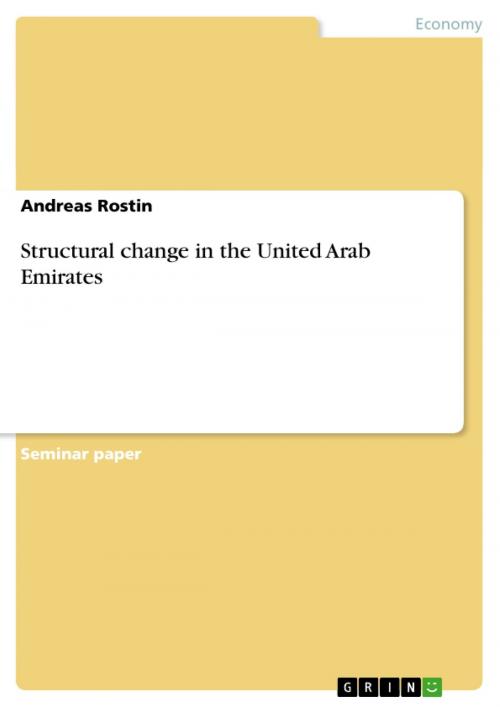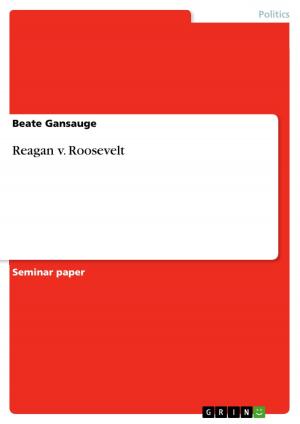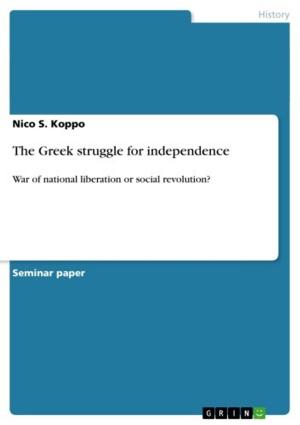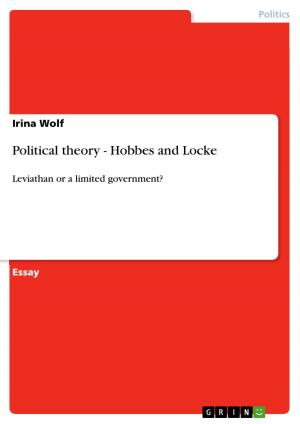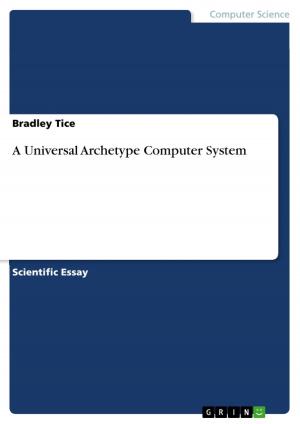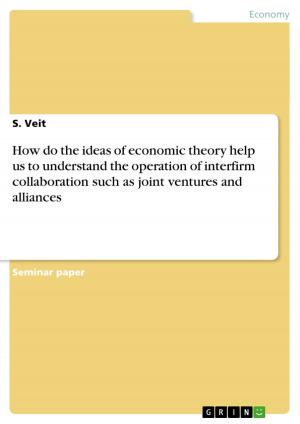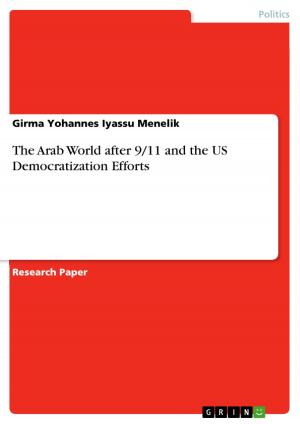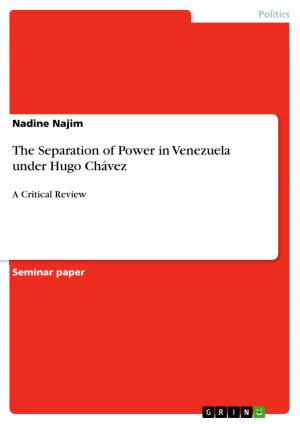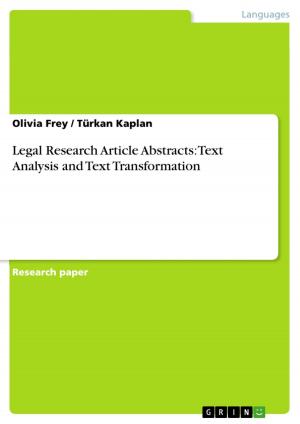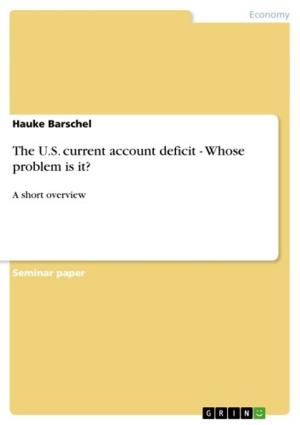Structural change in the United Arab Emirates
Nonfiction, Social & Cultural Studies, Political Science, Politics, Economic Policy| Author: | Andreas Rostin | ISBN: | 9783638400732 |
| Publisher: | GRIN Publishing | Publication: | July 21, 2005 |
| Imprint: | GRIN Publishing | Language: | English |
| Author: | Andreas Rostin |
| ISBN: | 9783638400732 |
| Publisher: | GRIN Publishing |
| Publication: | July 21, 2005 |
| Imprint: | GRIN Publishing |
| Language: | English |
Seminar paper from the year 2004 in the subject Business economics - Economic Policy, grade: 1,3, Georgetown University, course: Economics of the Middle East, 19 entries in the bibliography, language: English, abstract: Over the past 35 years, the seven emirates comprising the United Arab Emirates (UAE) have experienced unprecedented economic development. The immeasurable inflow of petrodollars since the first oil crisis in 1973 has transformed the UAE from one of the poorest countries in the world into one with a standard of living comparable to the countries of Western Europe and North America. However, with crude oil and natural gas reserves diminishing steadily, income from these two natural resources will not continue to flow indefinitely. It is questionable whether economic growth in the emirates can be sustained when oil extraction and exports decline. Recent efforts to diversify the UAE's economic activity and thereby lessen the country's dependency on oil and natural gas have had a certain degree of success. At the same time, however, the federal government has been unable to broaden its revenue base to include income from non-hydrocarbon activities, a step seen as essential for guaranteeing sustained economic prosperity. This essay will cast an eye on the economic and social transformation that has taken place in the emirates, focusing heavily on the question of sustainability. It will begin by outlining the effects that the oil windfall has had on the UAE's development over the past three decades. Then it will emphasize the importance of economic and fiscal diversification and point to success and failure in attempting this structural transition. It will analyze the inhabitants' apparent reluctance to change and attempt to give reasons for this phenomenon. Finally, it will offer suggestions for achieving a foundation for sustained economic growth in view of continuously decreasing oil reserves.
Seminar paper from the year 2004 in the subject Business economics - Economic Policy, grade: 1,3, Georgetown University, course: Economics of the Middle East, 19 entries in the bibliography, language: English, abstract: Over the past 35 years, the seven emirates comprising the United Arab Emirates (UAE) have experienced unprecedented economic development. The immeasurable inflow of petrodollars since the first oil crisis in 1973 has transformed the UAE from one of the poorest countries in the world into one with a standard of living comparable to the countries of Western Europe and North America. However, with crude oil and natural gas reserves diminishing steadily, income from these two natural resources will not continue to flow indefinitely. It is questionable whether economic growth in the emirates can be sustained when oil extraction and exports decline. Recent efforts to diversify the UAE's economic activity and thereby lessen the country's dependency on oil and natural gas have had a certain degree of success. At the same time, however, the federal government has been unable to broaden its revenue base to include income from non-hydrocarbon activities, a step seen as essential for guaranteeing sustained economic prosperity. This essay will cast an eye on the economic and social transformation that has taken place in the emirates, focusing heavily on the question of sustainability. It will begin by outlining the effects that the oil windfall has had on the UAE's development over the past three decades. Then it will emphasize the importance of economic and fiscal diversification and point to success and failure in attempting this structural transition. It will analyze the inhabitants' apparent reluctance to change and attempt to give reasons for this phenomenon. Finally, it will offer suggestions for achieving a foundation for sustained economic growth in view of continuously decreasing oil reserves.
